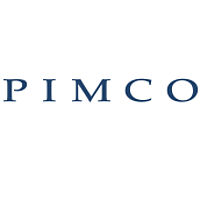3 areas of the market that look cheap
There are two factors driving markets today, fundamentals and technicals. Fundamentally, the global economy is increasingly in shut down mode. This is temporary and we'll all get through this. Companies and people will need support and governments are stepping up to do so. Central banks are also stepping up around the world. There's clearly a high degree of uncertainty now in global markets and we may see default rise, even materially for low quality assets. Nevertheless, we entered this period today from a position of strength in several ways.
Number one, the private sector imbalances were lower. Number two, consumers and high quality businesses are healthy. Number three, the banking system is well capitalised. There's no question China is slowing, but they are recovering and the US and Europe and other economies around the world will too. It's important to note from a credit perspective is many investment grade companies have strong balance sheets.
The second factor which is driving markets today is technicals. No question, market liquidity has been challenged over the last few weeks. Social distancing policies have caused many trading desks to be more thinly staffed for sell side firms and large moves in markets have also exacerbated swings. Leverage has been unwound in some trades. This is actually cause for selling to occur.
And now high quality assets such as investment grade credit, mortgage back securities and asset back securities look very cheap to us.
Assessing the impact
Today's markets have actually moved ahead of economies in terms of pricing and risk. Credit markets have now priced in a recession. Markets are pricing in higher defaults that we would typically see in most recessions, and today we are seeing good opportunities globally in high quality credit assets. How are we evaluating companies and markets today?
PIMCO has strong relationships with companies all over the world and in fact, we're speaking with these companies every day. Companies in the eye of the storm, including the travel and tourists industry, airlines, hotels and autos. These industries will need support, but governments globally are stepping up and we're seeing that in the airline industry. Many companies today actually have very strong balance sheets and are well prepared for this crisis. For example, many companies today, like the telecom industry, the tower industry, the cable industry, utilities and supermarkets are well positioned to handle today's crisis. Many of these companies are focused on liquidity, but they're proactively taking steps.
What’s next?
What are we doing today at PIMCO to analyse companies and what are we watching?
- The path of the virus and the severity. When will we have this under control? And its impact on the global economy.
- The global policy response, both fiscal and monetary.
- Global financial conditions.
- Credit markets. Can companies issue new bonds into the market?
- The health of the global banking system.
- Market liquidity.
- And the longterm health and fundamentals of companies in the economy.
In the global credit markets today, we want to stay in high quality and defensive non-cyclical companies with strong balance sheets that can weather the storm. And most importantly, we wish all of you well through these challenging times.
Written by Mark Kiesel, CIO GlobalCredit
Investing in Uncertain Markets
Fear of the coronavirus’ impact on global growth has roiled markets. While we believe growth should rebound after the outbreak abates, the sell-off is another stark reminder that disruptors and uncertainty are playing an increasing role in global financial markets. What should investors consider in uncertain times? Visit our website for more information


